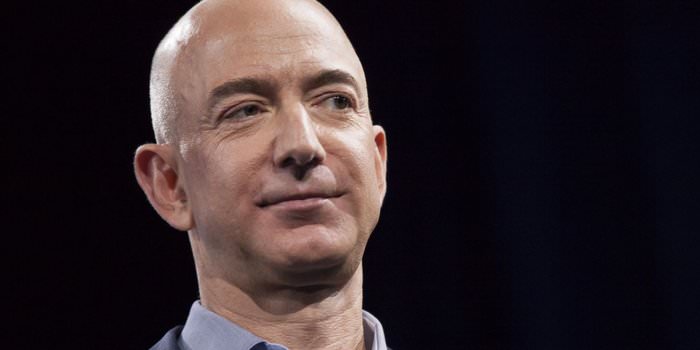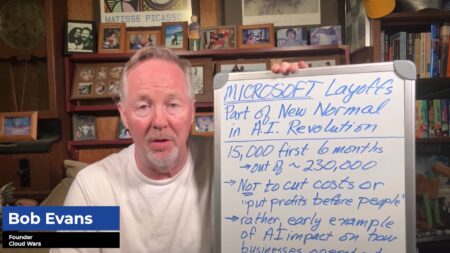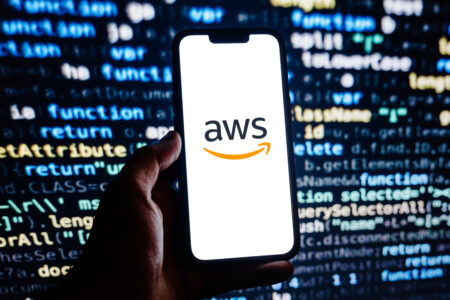Grocers, retailers, online marketers, package-delivery companies and now pharmacy/healthcare companies are facing savage competition from juggernaut Amazon—so why would any company in any of those industries voluntary subsidize bare-knuckle competing Amazon by choosing subsidiary AWS as its cloud-computing vendor?
 That’s a compelling question—but at least to date, Amazon’s aggressive expansion plans into multiple industries don’t appear to have hurt its wildly successful cloud-computing unit, which last quarter posted revenue of $5.44 billion, up a whopping 49%.
That’s a compelling question—but at least to date, Amazon’s aggressive expansion plans into multiple industries don’t appear to have hurt its wildly successful cloud-computing unit, which last quarter posted revenue of $5.44 billion, up a whopping 49%.
So why should anyone believe Amazon’s latest foray into a new market—its $1-billion acquisition of online pharmacy PillPack—will have any impact on AWS’s stunning growth? Consider the following:
- Not content with jumping into competition with AWS’s customers in healthcare and pharmacy, Amazon yesterday also said it would muscle its way into the package-delivery business—a move that the Wall Street Journal described as “Amazon drives deeper into FedEx, UPS turf.” So the sheer scope of Amazon’s multi-industry ambitions is drawing more attention to an incredibly blunt issue for businesses in those industries that Amazon has jumped into: why in the world would we subsidize a new and extremely aggressive competitor by doing business with its cloud-computing unit?
- While AWS is the clear leader in the IaaS segment of the enterprise cloud, businesses today have plenty of alternatives to AWS: Microsoft, IBM, Google, Oracle and more. And some of those other cloud vendors have broader cloud portfolios than AWS does, with deep extensions into PaaS and SaaS.
- Amazon doesn’t get into new markets to drive a bit of incremental growth or boost its supply-chain efficiency: it gets into them to be the leading player. So businesses in those industries into which Amazon is jumping cannot overlook the foolishness—and I don’t think there’s any other word for it—of subsidizing Amazon’s entry by pumping revenue into its AWS unit.
- Building on that point, it’s been widely reported that AWS is far and away the profit engine for the entire Amazon corporation—so grocers and shipping companies and pharmacies and retailers of all stripes that do business with AWS are very directly funding the financial engine of Amazon, which is already one of the world’s largest and most highly valued corporations. Earlier this year, a ZDnet article described the significance to the parent company AWS’s profitability: “AWS had 2017 operating income of $4.33 billion on sales of $17.46 billion. In other words, on an annual basis all of Amazon’s operating income derives from AWS.”
In viewing the trajectory of the parent company’s hyper-aggressive expansion plans in multiple markets, it’s important to note that the constituents whose opinions matter most to CEO Jeff Bezos—shareholders—clearly love the direction Bezos has chosen for Amazon: its market cap as of this morning was $825 billion, making it one of the most highly valued corporations on the planet.
To put that valuation in perspective, investors regard Amazon as almost 10% more valuable than mighty Microsoft, #1 on my Cloud Wars Top 10 list and whose market cap of this morning was $758 billion; and almost 6% more valuable than Google and its market cap of $778 billion.
And worrying about what competitors might or might not do is a notion that Bezos has dismissed on many occasions. During a trip to India a few years ago, Bezos made this comment about focusing on customers versus competitors:
“At Amazon, we have a long history of obsessing over customers rather than competition. At every place we do business, we have great competitors. It is okay, that is how the world is supposed to work. I think we do well because we don’t think about that. We ask, ‘what do customers want?’ You know, competitors will never give us money (laughs). We service our customers and they send us money. You do not want to get distracted by this or that, in a world where you can get easily distracted.”
So it’s clear that Amazon’s not going to ease up in either its corporate expansion into new businesses, or in its drive to make its AWS the world’s pre-eminent supplier of cloud computing services.
And so the ultimate question is this: will AWS customers operating in industries into which the parent company has jumped decide to subsidize the competitive capabilities of one of the world’s most successful, wealthy and aggressive companies by buying cloud services from AWS?
*******************
RECOMMENDED READING FROM CLOUD WARS:
The World’s Top 5 Cloud-Computing Suppliers: #1 Microsoft, #2 Amazon, #3 Salesforce, #4 SAP, #5 IBM
Amazon Versus Oracle: The Battle for Cloud Database Leadership
As Amazon Battles with Retailers, Microsoft Leads Them into the Cloud
Why Microsoft Is #1 in the Cloud: 10 Key Insights
SAP’s Stunning Transformation: Qualtrics Already “Crown Jewel of Company”
Watch Out, Microsoft and Amazon: Google Cloud CEO Thomas Kurian Plans To Be #1
The Coming Hybrid Wave: Where Do Microsoft, IBM and Amazon Stand? (Part 1 of 2)
Oracle, SAP and Workday Driving Red-Hot Cloud ERP Growth Into 2019
*********************
If I were one of the other major cloud vendors offering not only the AWS specialty of IaaS but also broader cloud services in PaaS and SaaS that AWS cannot match, I would immediately launch a high-profile marketing and sales campaign aimed specifically at customers and prospects in retail, groceries, shipping, online commerce, pharmacy and healthcare.
And this campaign would have two major focuses:
first, raising awareness of the parent company’s incursion into your industry and the utter foolishness of subsidizing that incursion by doing business with Amazon’s hugely profitable AWS unit;
and second, offering fabulous customer-centric deals.
Hey Microsoft, IBM, Oracle and Google—what are you waiting for?
Subscribe to the Cloud Wars Newsletter for twice-monthly in-depth analysis of the major cloud vendors from the perspective of business customers. It’s free, it’s exclusive, and it’s great!









